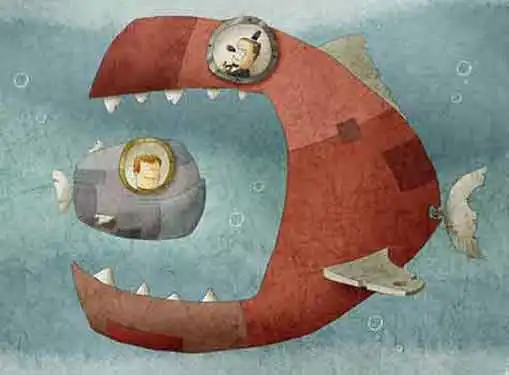Small Business Startup News
Will Your Startup Eat Itself?
Written by Tim Morral
Published: 5/27/2015
An app that cuts the legs out from under decades-old industries can be developed in a matter of months. But as markets inevitably find equilibrium, will your startup still be standing?
In a recent column, "There's an Uber for Everything Now," Geoffry Fowler writes, "I've got a maid, masseuse, doctor, chef, valet, personal shopper, florist and bartender. Each has his own app and can arrive at my door in as little as 10 minutes."

The Uberfication of the service economy has allowed people to earn extra cash and sometimes even a steady stream of income. Services like lodging (AirBnB), transportation (Uber and Lyft) and food delivery (GrubHub) are now more accessible. But those companies that are providing value through price -- as opposed to convenience -- will need to navigate the risks of replication and market saturation to achieve long-term success.
Take Instacart, which has had no problem attracting investors. (The company closed a $220 million round in January, valuing it at about $2 billion.)
Instacart allows you to outsource your grocery shopping to a stranger through the company's mobile app. At first, the company marked up the prices of grocery items and passed along the juice to the shopper-contractors, while of course keeping a little for itself. But now, with evidence that Instacart actually brings grocery stores more customers and higher basket sizes, the company has begun making deals with the grocery stores themselves. Through this B2B model, many Instacart users will be paying prices that are the same as in-store prices, and Instacart will be taking a cut of the sales from the grocery stores.
Farhad Manjoo of The New York Times notes that the business case Instacart is now making could prove cannibalistic. Once every grocery store is using Instacart or a similar service, stores might be less inclined to choose between bearing the cost or passing it on to in-store shoppers. Instacart could be forced to revert to its original model of marking up prices in exchange for the convenience of personal shopping delivery.
Uber customers too could see prices rise as demand surges -- indeed, they already have. In fact, many startups could be profiting from both the "cool factor" and the low prices of a nascent marketplace, but when equilibrium is reached and prices normalize, only the companies that add enough value to justify their prices will remain standing.
Share this article
About Our Breaking Small Business News
Our small business journalists publish news articles for entrepreneurs five days a week. Our small business news articles review trends in small business, analyze the impact of new government policies, monitor key economic indicators that impact small business, and cover many other topics of interest to small business owners.
Additional Resources for Entrepreneurs
